#buddha nature
Text
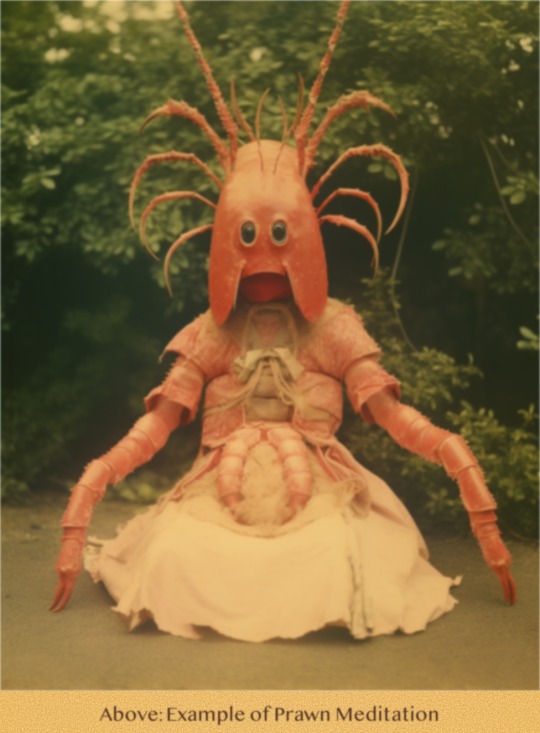
Above: Example of Prawn Meditation
From Zen and Zoology: Finding Buddha Nature in the Animal Kingdom, 1979
407 notes
·
View notes
Text
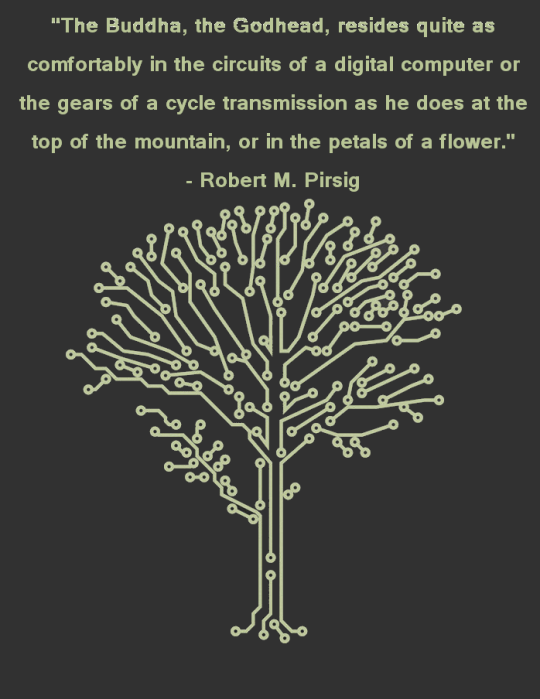
Buddha in the Shell
24 notes
·
View notes
Text
“It is only by breaking the cycles of negativity that we can help ourselves, and others, to rise. Feeling resentful and angry, wanting revenge for what others have done, holding on to any part of the negative experiences we’ve gone through at the hands of others—these are the heavy chains with which negativity binds itself to us. Why would anyone want that?”
- Tina Turner, Happiness Becomes You
29 notes
·
View notes
Text
“The journey towards The Absolute is a journey beyond the material, where every step is a deeper contemplation into the mysteries of life and existence.”
#consciousness#enlightenment#spirituality#spiritualawakening#spiritualenlightenment#philosophy#interconnectedness#nonduality#aham brahmasmi#brahman#god#buddha nature
13 notes
·
View notes
Text

Satori.
©Robin Fifield 2024.
6 notes
·
View notes
Text
There's something very inspiring about the belief that everyone has "Buddha nature" meaning everyone is capable of becoming enlightened or in some ways is already enlightened they just have defilements obscuring it.
It's taught that the three poisons (anger, greed, delusion) cause all of the evil we find in the world. By walking the eightfold path and working through those poisons, we come back to our original nature our Buddha nature.
2 notes
·
View notes
Text
Meditation helps the Law of Attraction
“You don’t need to work when you are meditating,” Abraham told a young woman who was called to the stage to question the spirits about issues she was facing Saturday. She was among some 15 persons who shared the “hot seat” at the Renaissance Hotel near Philadelphia’s International Airport for a workshop.
The message resonated with me and I hope everyone of the more than 500 in attendance took it…

View On WordPress
#Abraham-Hicks#awakening#Buddha nature#enlightenment#heartfelt#Higher Self#Law of Attraction#meditate#meditation#mindfulness#Spiritual#spirituality
14 notes
·
View notes
Text

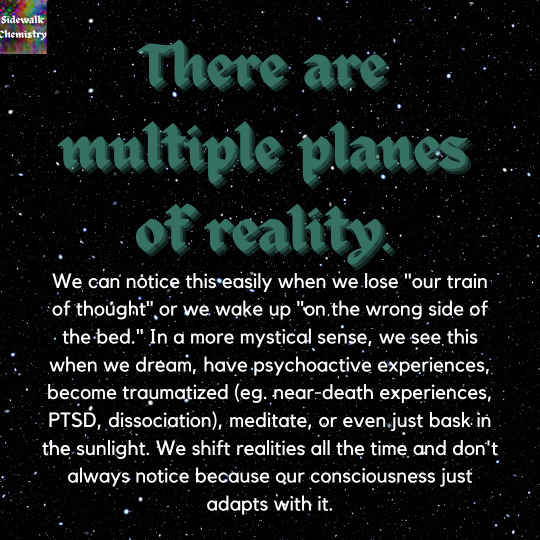
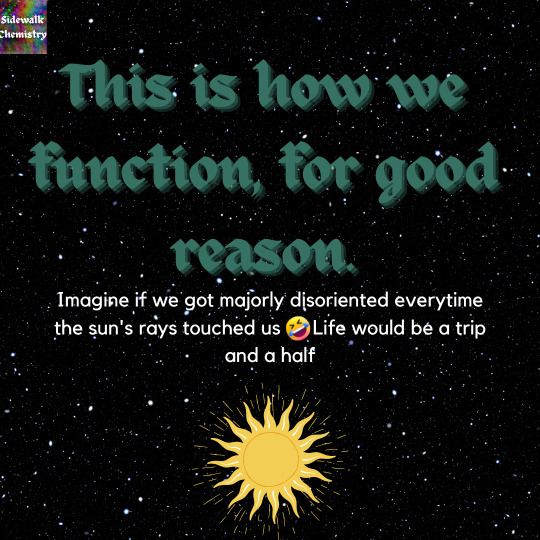
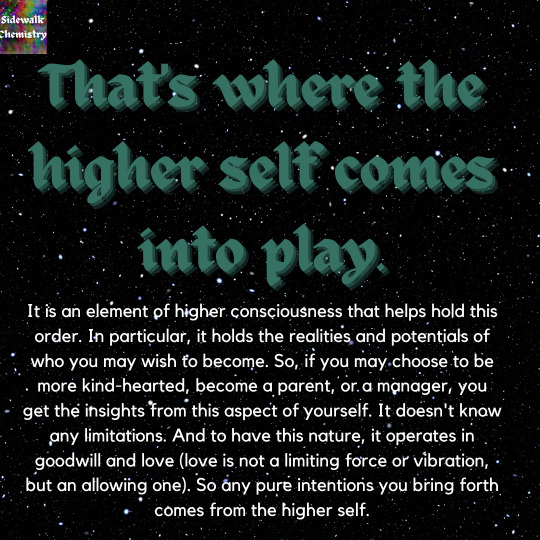
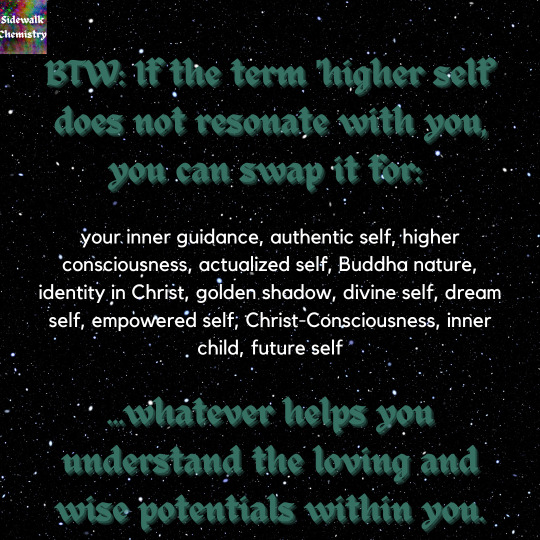
Today is supposed to be about gratitude but it's hard to understand true gratitude until you're in conscious connection with your higher self. Spiritual health is holistic health too 😊
Clear instructions on how to meet your higher self is up on Patreon
#higher self#holistic health#holistic healing#spiritual growth#gratitude#golden shadow#inner child#christ consciousness#buddha nature#mysticism#reality shifting#metaphysics#multidimensional#states of consciousness#awareness#meditation#mindfulness#manifestation#pure intentions#inner guidance#self actualization#true being#empowerment#sidewalkchemistry
17 notes
·
View notes
Text
The vow is repeated before every practice, "I take refuge in the Buddha, the Dharma, and the Sangha." Hearing the phrase, "I take refuge in the Buddha," sometimes mistakenly conjures up the idea of taking refuge in one person, Siddhartha Gautama, who became known as Shakyamuni Buddha, the buddha of our age. However, Buddhism maintains that you are taking refuge in the enlightened consciousness that he accessed and revealed in his teachings. You are also taking refuge in your buddha nature, your innate capacity as a human being to awaken just as he did.
- PhD Rachael Wooten, Tara - The Liberating Power of the Female Buddha
#buddhism#buddha#rachael wooten#tara#quote#books#the liberating power of the female buddha#enlightenment#enlightened consciousness#buddha nature#refuge#dharma#spirituality
10 notes
·
View notes
Text
I have recently read a book, The Joy of Living by Yongey Mingyur Rinpoche. This book was so beautiful and enlightening. By the end of it, Rinpoche in a short summary says that learning about our mind in depth, meditating, observing the flow of our thoughts as they come and go, teaches us that there are no differences between you and the others as, in the end, we all are connected. We all want to be happy and we all know what fear, anger and aversion are. The more we dive into ourselves and understand the universal nature of the mind, as if minds were trees linked by roots all of the universe, the more we become accustomed and symbiotic with the ancient prayer of the Four Immeasurables, that goes like this:
May all sentient beings have happiness and the causes of happiness.
May all sentient beings be free from suffering and the causes of suffering.
May all sentient beings have joy and the causes of joy.
May all sentient beings remain in great equanimity, free from attachment and aversion.

#buddhism#rinpoche#tibetan art#tibetan buddhism#compassion#lovingkindness#buddha nature#meditation#meditatedaily
2 notes
·
View notes
Quote
Mindfulness, concentration, and insight are in us all as potentialities--seeds--and that is our buddha-nature. Everyone has buddha-nature; that is the good news. It's not hope; it is a reality.
Thich Nhat Hanh, Zen and the Art of Saving the World
1 note
·
View note
Photo

Rob Schouten, Buddha Nature
* * *
The Yoga Sutras of Patanjali: Meditation, part II
“12. When the mind, after becoming fixed upon a single object, has ceased to be concerned in any thought about the condition, qualities, or relations of the thing thought of, but is absolutely fastened upon the object itself, it is then said to be intent upon a single point—a state technically called Ekagrata. ...
24. By performing concentration in regard to benevolence, tenderness, complacency, and disinterestedness, the ascetic is able to acquire the friendship of whomsoever he may desire. ...
27. By concentrating his mind upon the sun, a knowledge arises in the ascetic concerning all spheres between the earth and the sun. ...
35. By concentrating his mind upon the Hridaya, the ascetic acquires penetration and knowledge of the mental conditions, purposes, and thoughts of others, as well as an accurate comprehension of his own.
Hridaya is the heart. There is some disagreement among mystics as to whether the muscular heart is meant, or some nervous center to which it leads. ...
36. By concentrating his mind upon the true nature of the soul as being entirely distinct from any experiences, and disconnected from all material things, and dissociated from the understanding, a knowledge of the true nature of the soul itself arises in the ascetic.
37. From the particular kind of concentration last described, there arises in the ascetic, and remains with him at all times, a knowledge concerning all things, whether they be those apprehended through the organs of the body or otherwise presented to his contemplation.
38. The powers hereinbefore described are liable to become obstacles in the way of perfect concentration, because of the possibility of wonder and pleasure flowing from their exercise, but are not obstacles for the ascetic who is perfect in the practice enjoined.”
— William Q. Judge, The Yoga Aphorisms of Patanjali (Book III)
#Rob Schouten#Buddha Nature#Art#Beauty#Painting#Visionary#Yoga Sutras#Patanjali#Meditation#Wisdom#William Q. Judge#The Yoga Aphorisms of Patanjali#Concentration#Hridaya#Ekagrata
10 notes
·
View notes
Text
"One day Nambutzu, a great warrior, came to see [Ichu, the seventh master of Jifukuji, a famous painter and Zen master] and asked whether he could paint the fragrance described in a famous line of poetry, 'After walking through the flowers, the horse's hoof is fragrant.' Ichu drew a horse's hoof with a butterfly fluttering around it.
Then Nambutzu quoted the line, 'Spring breeze over the river bank,' and asked for a picture of the breeze. Ichu drew a branch of a waving willow.
Nambutzu cited the famous Zen phrase, 'A finger directly pointing to the human mind; see the nature to be Buddha,' and asked for a picture of the mind. Ichu picked up the brush and flicked a spot of ink onto Nambutzu's face. The warrior was surprised and annoyed; Ichu rapidly sketched the angry face.
Nambutzu asked for a picture of 'the nature.' Ichu broke the brush. Nambutzu didn't understand, and Ichu remarked, 'If you haven't got that seeing eye, you can't see it.' Nambutzu said, 'Take another brush and paint the picture of the nature.' Ichu replied, "Show me your nature and I'll paint it.' Nambutzu had no words.
There are test questions for this koan, including: How do you show the nature? Come, see your nature and bring proof of it! Say something on behalf of Nambutzu! ...
Painter, brush, canvas, image, subject — they are not many. The painter is the brush, the image is the painter, the subject is the object, the canvas is the paint. Those things only separate themselves when we separate them by the way we use our mind. Whether you are speaking of a painting, Mu, a tree, a Buddha, or a plum branch — how you see it, how you relate to it, has to do with how you live your life, with the question of life and death itself."
- John Daido Loori, from "Painting Spring." Mountain Record of Zen Talks, 1988.
#john daido loori#quote#quotations#art#painting#zen#buddhism#buddha nature#mind#interdependence#interconnectedness#identity#koans#mu
3 notes
·
View notes
Text
“Spiritual awakening is the process of recognizing our essential goodness, our natural wisdom and compassion.”
Tara Brach, Radical Acceptance: Embracing Your Life With the Heart of a Buddha
33 notes
·
View notes
